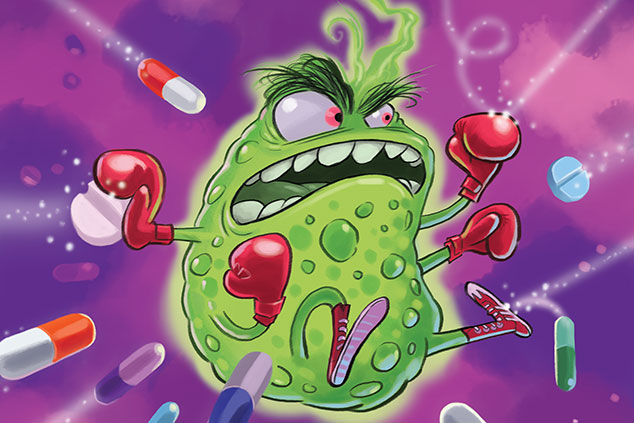
Antibiotic resistance could turn medical inconveniences into death sentences and become a bigger killer than cancer. Governments and pharmaceutical companies are fighting back. Sarah Moore reports.
Imagine dying of an infected cut on your finger. Or being told that a hip procedure or liver transplant could end up killing you. This may sound like a medical disaster film, but it could well happen fairly soon. Bacteria are becoming increasingly resistant to the antibiotics used to cure common ailments and illnesses, or to prevent infection during surgery.
If these resistant “superbugs” prevail, antibiotics will be ineffective and “modern medicine will be lost”, says Dame Sally Davies, the chief medical officer for England. As antibiotics stop working, a growing list of infections – notably pneumonia, tuberculosis, blood poisoning, gonorrhoea, and food-borne diseases – are becoming harder, and sometimes impossible, to treat, says the World Health Organisation (WHO). What would once have been easily treated afflictions could once again prove fatal, while surgery could be vastly more dangerous. “Without urgent action, we are heading for a post-antibiotic era, in which common infections and minor injuries can once again kill.”
Back to the pre-antibiotic era
At least two million Americans come down with drug-resistant infections every year. Unless more is done to tackle the rise of antibiotic-resistant superbugs, as many as 90,000 people in the UK could die over the next three decades, according to the Organisation for Economic Co-operation and Development (OECD).
It predicts 2.4 million deaths across Europe, North America and Australia by 2050. If you think those numbers sound terrifying, then you should avoid the UK government’s 2015 Review on Antimicrobial Resistance, chaired by former Goldman Sachs chairman and UK Treasury minister Jim O’Neill. This warned that by 2050, antibiotic-resistant infections could kill ten million people a year – more than the 8.2 million killed by cancer. And “if that weren’t ghastly enough, the cumulative impact on the world’s GDP is also likely to reach $100trn (£70trn) by the middle of the century, equivalent to the loss of an economy the size of the UK from global output every year”, notes Investors Chronicle.
How Alexander Fleming discovered penicillin
Alexander Fleming famously discovered the first antibiotic in 1929 at St Mary’s Hospital in London. While studying influenza, Fleming noticed that mould had grown on a set of accidentally contaminated culture dishes that he was using to grow the germ staphylococcus. This mould had created a circle around itself that was free of bacteria. Fleming eventually named this substance penicillin. Yet it was actually two other scientists, the Australian Howard Florey and Ernst Chain, a refugee from Nazi Germany, who developed the substance so that it could be used as a drug able to treat infection.
Subscribers can read it in the digital edition or app